Math Diagnostic Assessment and Tests
reviewed by Jo-ann Caballes
Updated on September 26, 2024
Mathematical proficiency is a vital asset since it is necessary not only for academic success but also for daily tasks like shopping, meal prepping, etc. However, it is still common for school students to struggle with some math concepts.
Math diagnostic assessments can pinpoint improvement areas. Read this article to get multiple free online math tests to help you make your child proficient in this subject!
What is a diagnostic assessment?
A diagnostic assessment is a specialized evaluation to identify an educational or psychological concern. This process involves various methods, including standardized tests, observations, and interviews, to pinpoint the cause of a student’s academic difficulties. The 4 key purposes of diagnostic assessments, including diagnostic math assessment are:
- Identifying Learning Disabilities: Pinpointing specific learning disabilities like dyslexia, dyscalculia, or ADHD.
- Determining Developmental Delays: Assessing cognitive, motor, or social-emotional development to identify potential delays.
- Understanding Academic Difficulties: Identifying the underlying reasons for academic struggles, such as curriculum mismatch or lack of support.
- Providing Tailored Interventions: Recommending individualized educational plans or therapy to address the identified needs.
Most assessments include standardized tests, behavior observations, interviews, and medical evaluations. It may take a few days until your kid gets a result of those assessments. It is done to ensure that therapists find the actual reason for your child’s behavior and how to make them feel better.
Meanwhile, school assessments ensure that students absorb all information from the previous themes and have no knowledge gaps. One of the most common school assessments is the iReady test, which ensures a child is ready to advance to a higher grade.
What is a math diagnostic test?
According to Patrick McClure, CEO of Homeschool Tutor:
“Math diagnostic tests are used to diagnose students' understanding of foundational math concepts.”
By using the results of math evaluation tests, teachers can create personalized syllabuses to address students’ specific needs. We recommend conducting them once a few months to track the child’s progress.
Successfully pass elementary and middle school math diagnostic tests with Brighterly
We, at Brighterly, offer a personalized approach to all our students to ensure they pass any elementary and middle school math diagnostic tests.
During the first free study session, we ask your kid to pass an easy math quiz to determine their knowledge gaps. Later, we create a personalized interactive syllabus to ensure your child memorizes formulas and understands the math problems’ logic.
All our tutors are certified professionals with a passion for teaching math. They provide clear explanations, answer questions, and offer encouragement throughout the learning process. We offer flexible scheduling to our online lessons to ensure the maximum comfort of study sessions.
Math Diagnostic Test
Do you want to find your child’s current math knowledge but don’t want to wait for math diagnostic test results in your school? You can use a basic online math assessment to pinpoint the child’s knowledge gaps. It won’t completely replace a professional test but still gives you some insights.
Test Question 1: Convert the number below to words
It’s vital knowledge for daily life since it allows students to read and write numbers in words, such as writing checks, filling out forms, or reading contracts. During this online math diagnostic test, you provide numbers to your kid and ask them to read them out loud. Here are some easy numbers to test the child.
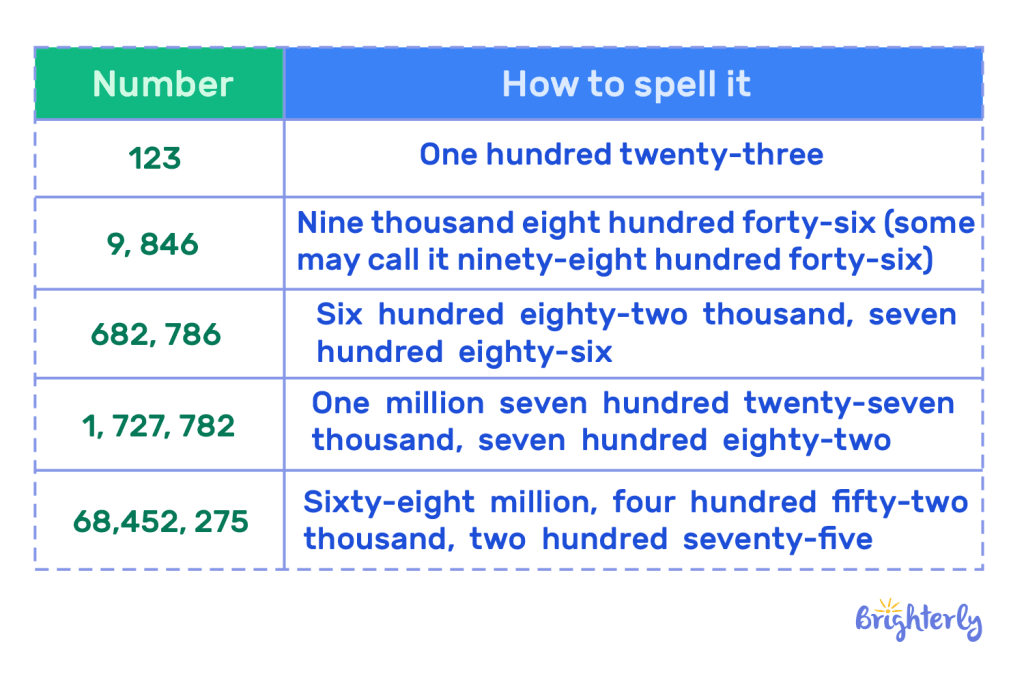
Test Question 2: Distinguish the proper type of triangle
Online math assessments can also inspect a child’s geometry skills. One of the most vital pieces of knowledge here is how to determine the proper shape of a chosen figure. Being able to identify triangle types is essential for solving various geometric problems, such as finding the measures of angles or sides.
Triangles are found in many real-world objects and structures, from architecture to engineering. Understanding triangle types can be helpful in analyzing these objects. To ensure that your kid knows different types of triangles, take a piece of paper and draw those shapes. Ask your kid what type of triangle it is and how they determine it.
Let them explain it in their own words, as the main aim here is to ensure that your child understands the essence. This math diagnostic test can be done online or offline. If you are an online tutor, draw those triangles on your iPad and share the screen. If you are the parent, draw it on a paper.
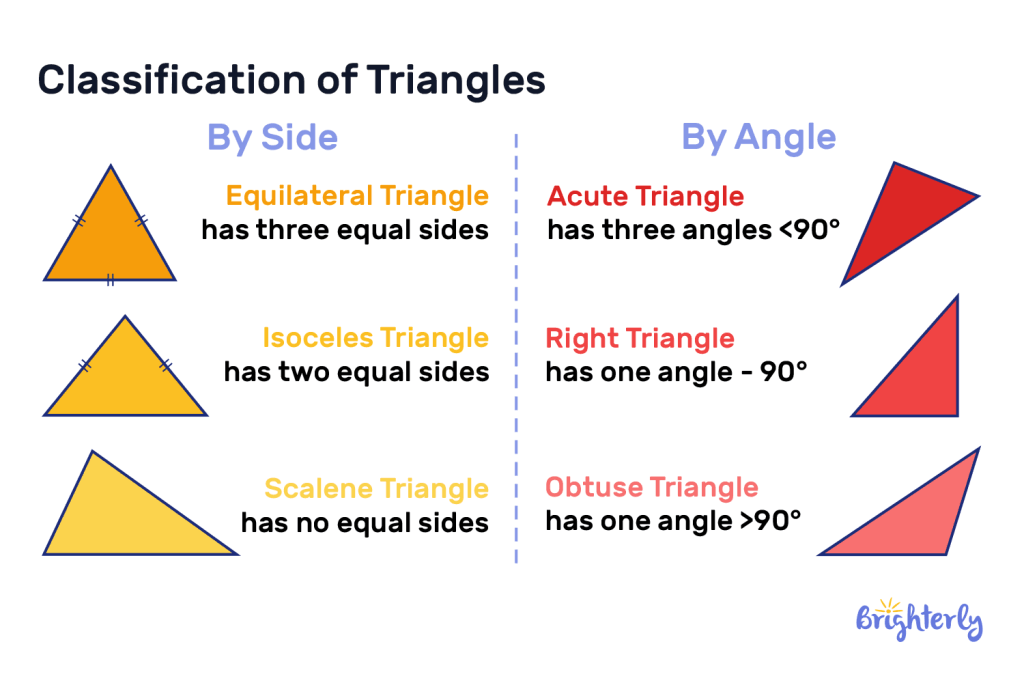
A solid understanding of triangle types is a foundation for further study in mathematics, especially geometry and trigonometry.
Test Question 3: Fractions and decimals
Fractions and decimals are fundamental building blocks of mathematics. That’s why even a free math diagnostic test should have at least a few questions about them.
Mastery of these concepts is crucial for understanding more advanced topics. Fractions and decimals are used in numerous everyday situations, such as cooking, measuring, shopping, and finance. You can use Brighterly free fractions worksheets as your test questionnaires.
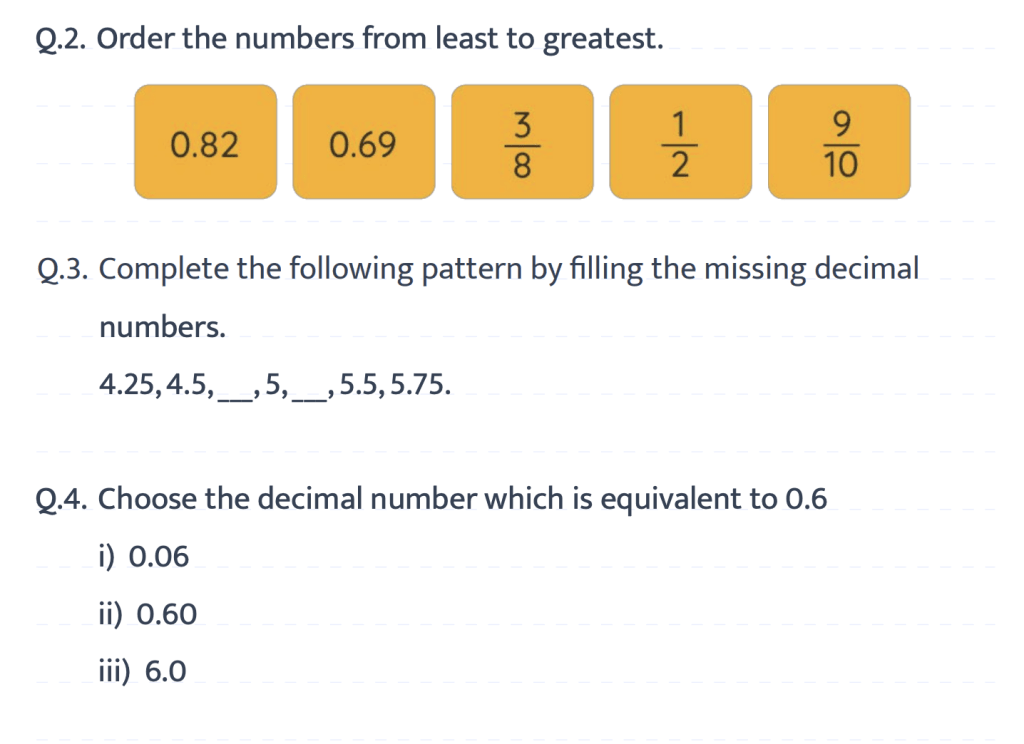
Test Question 4: Deal with trapezoid specifics
A trapezoid is still a relatively simple shape but with some advanced specifics that can be understood only by students of 3rd grade and higher. Due to its natural combination of simplicity and complexity, you can find various geometry problems with this shape.
Some 3rd-grade tests may ask your child to determine the trapezoid type. Try to practice them with the kids, explaining the differences between different types of trapezoids.
Kids in 4th grade may face more complex geometry problems, so they are asked to find the trapezoid area or perimeter. Use Brighterly’s quadrilateral worksheets as your free printable diagnostic math assessment. You can also try Brighterly’s interactive trapezoid test to mimic the exam in the friendly atmosphere of your home.
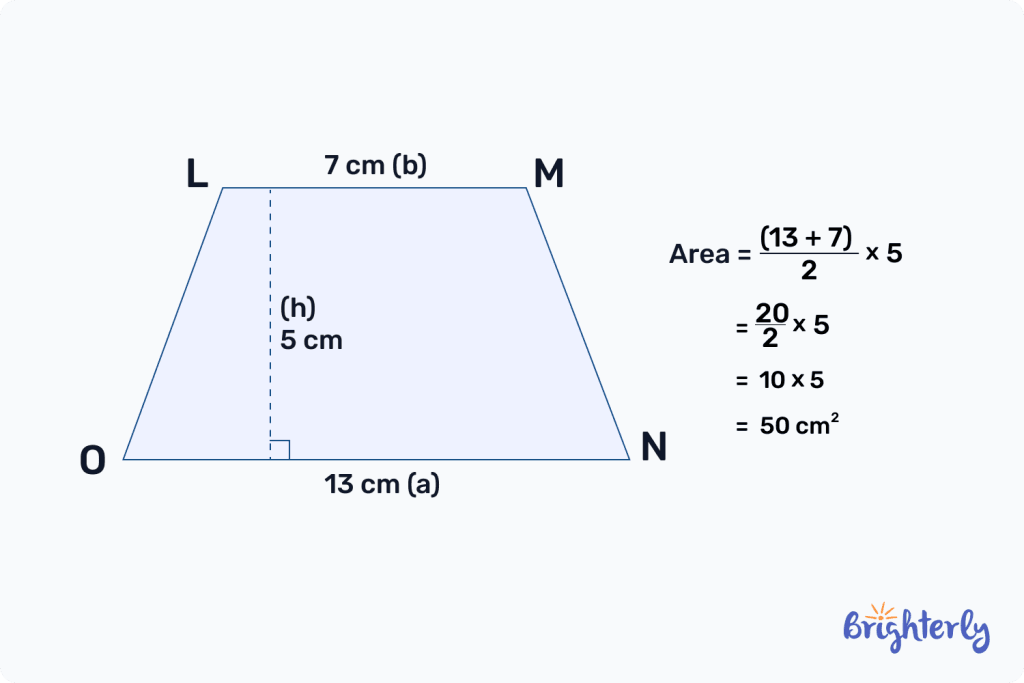
Test Question 5: It’s all about division
The division is known as one of the most complex basic math options. It can be complicated even for adults, so there is no wonder why there are so many division problems, even in high school math diagnostic tests.
Meanwhile, even elementary school students still need to understand the logic behind this math action. That’s why we, at Brighterly, have created dozens of division worksheets that can act like a free math diagnostic assessment you can take with your child.
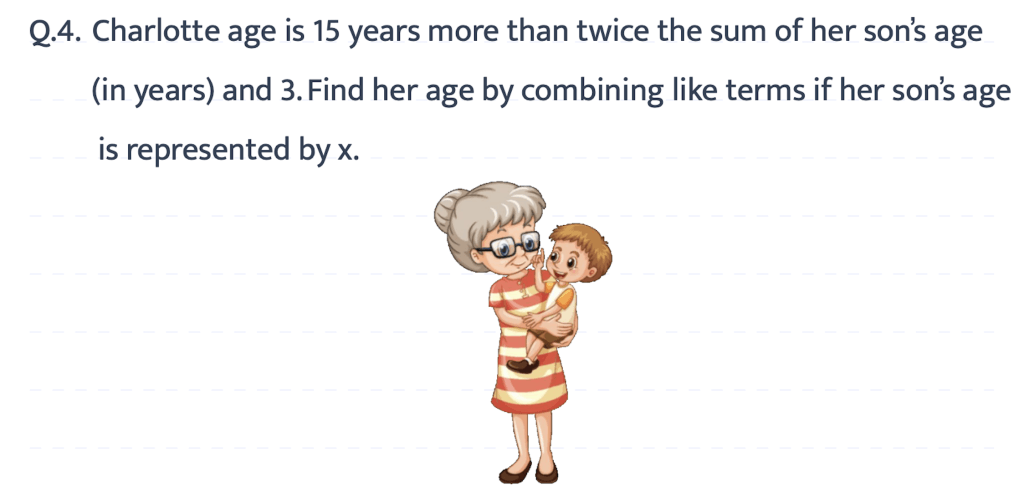
Diagnostic Math Tests by Grades
Diagnostic math tests are inevitable for educators to assess students’ mathematical understanding at different grade levels. These tests help identify whether a child learned all they need to know at their age.
Typically, a math test to determine grade level is performed at school at the end of each semester. But what to do if you want to understand your child’s progress in the middle of the school year? You can still conduct a quick math assessment to determine grade level.
It will show your child’s potential knowledge gaps so you’ll understand what to focus on during subsequent months.
Geillan Aly, Founder and CEO at Compassionate Math, supports the concept of leveraging math assessment to determine grade level:
“A math diagnostic assessment is a test to assess students' skills and abilities to prepare for upcoming lessons. ”
You can use Brighterly grade-sorted worksheets as a printable basic math skills assessment to inspect a child’s progress through the year. You can also use dedicated diagnostic math tests from Brighterly experts to exam your kid.
- 1st Grade Diagnostic Math Test
- 2nd Grade Diagnostic Math Test
- 3rd Grade Diagnostic Math Test
- 4th Grade Diagnostic Math Test
- 5th Grade Diagnostic Math Test
- 6th Grade Diagnostic Math Test
- 7th Grade Diagnostic Math Test
- 8th Grade Diagnostic Math Test
What Math Skills Are Tested in the Basic Math Test?
During a basic math test, you inspect math skills of different grade levels, from kindergarten number sequences to advanced math, including calculus and complex geometry. The most common components of math level assessment are:
- Number Sense: Assessing understanding of numbers and place value.
- Algebra: Evaluating proficiency in algebraic concepts like equations, expressions, and variables.
- Geometry: Assessing knowledge of shapes, measurements, and spatial relationships.
- Data Analysis: Evaluating skills in interpreting, analyzing, and representing data.
- Problem-Solving: Assessing the ability to apply mathematical concepts to solve real-world problems.
Diagnostic math assessment for elementary students is different from other age groups. While older students may have a few questions with easy addition or subtraction problems, youngsters will only have questions that correlate with their age.
A high school math assessment test usually combines questions with problems from all previous grades. Keep in mind that fact and seal their knowledge gaps ahead.
How to Prepare for a Math Test?
If you want your child to pass an assessment successfully, ensure they are prepared for a math test. The easiest way is to consider tutoring sessions. They will ask your kid to take a few easy tests to determine the student’s knowledge gaps. Later, they create a personalized syllabus to ensure your child solidifies their knowledge.
You can strengthen a child’s hard skills by implementing the following practices for the next grade level math assessment:
- Review the latest notes.
- Ask questions about the logic behind the math problem.
- Regularly solve different math problems.
- Solve free math assessment tests once in a few weeks. Review their results to modify the tutoring curriculum.
- Create mnemonic devices that can be used later in high school math assessment tests.
- Let the kid teach someone else since explaining concepts to others can solidify your understanding.
Keep in mind that the pre-exam week is one of the most important days of the year. Ensure your child gets a proper 8-hour sleep during this period, eats healthy nutritious meals, and stays calm and focused solely on exams. Following these tips helps you ensure that the kid successfully passes even the most complex math tests to determine grade level.
How many questions are on the iReady diagnostic test math?
The iReady diagnostic math test has nearly 60-90 questions, depending on student performance. Usually, the more questions your child gets during this elementary math assessment, the better. It shows that the student performs well, and the system provides them with more advanced questions.
What is a good score on the iReady math diagnostic test?
A good score on the iReady math diagnostic test depends on the grade. Generally speaking, if your child is above 50% of other students, they successfully pass this test. If your kid gets above 600 points on the elementary math diagnostic assessment, they have nothing to worry about. If it’s less, the result depends on their current grade.
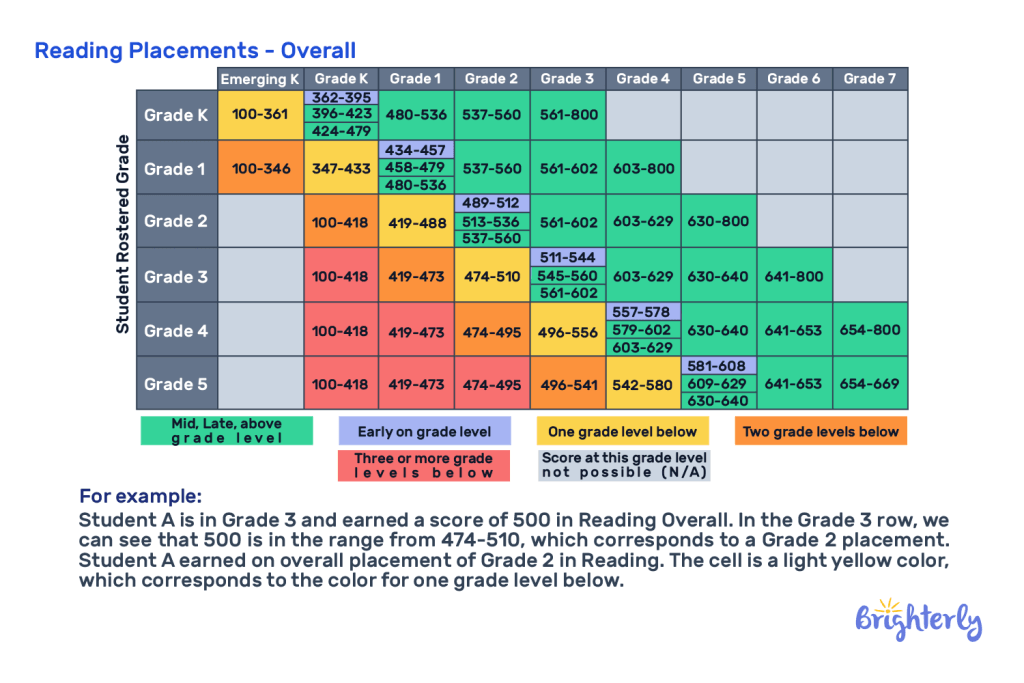
While there are no iReady math tests online, you can find dozens of worksheets that can help the student prepare for this exam.
Conclusion
Math proficiency is crucial for any child, as it unlocks limitless career paths in the future. It’s vital to keep track of a student’s progress with free online math tests to determine grade level. Those small inspections will demonstrate the potential knowledge gaps of your child. By identifying improvement areas early, you can be sure that your kid successfully passes the exam for the next grade.
Ready to unlock your child’s mathematical potential? Book your first free tutoring session today! Our experienced tutors will carefully assess your child’s needs with elementary and middle school math diagnostic tests and develop a customized syllabus tailored to their learning styles and goals.














